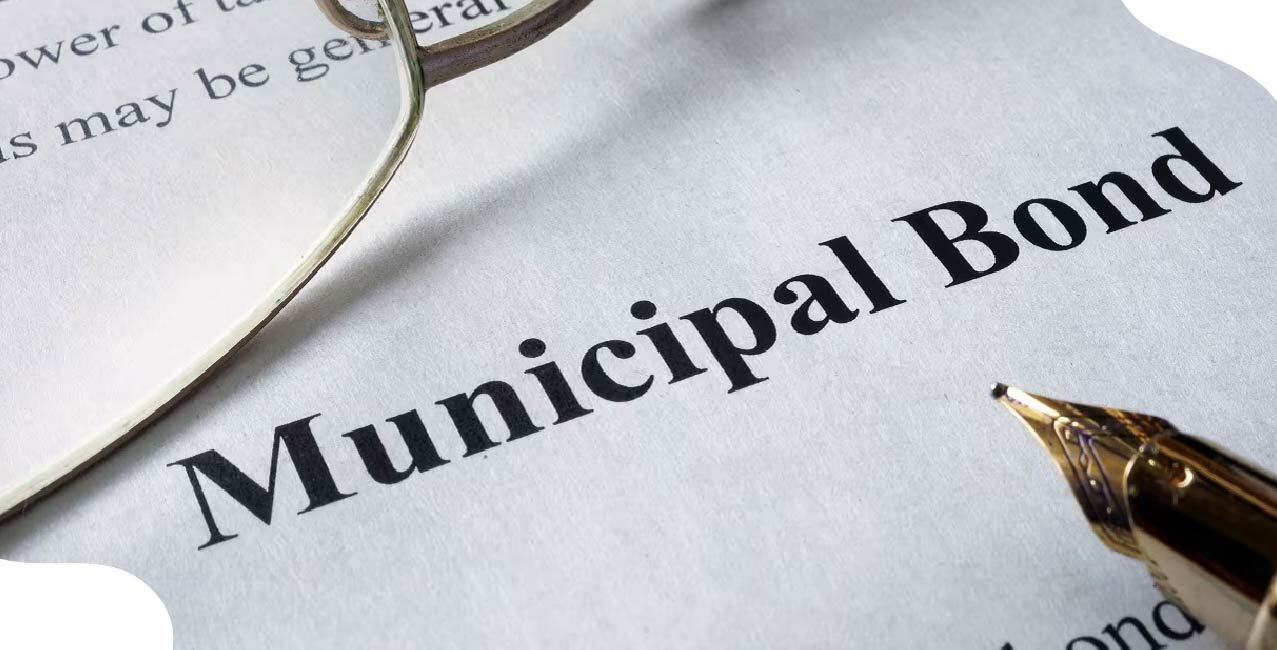What are Junk Bonds – High-Yield Bonds and Their Risks

Check Your Loan Eligibility Now
By continuing, you agree to LoansJagat's Credit Report Terms of Use, Terms and Conditions, Privacy Policy, and authorize contact via Call, SMS, Email, or WhatsApp
- Because you're lending to risky businesses that might find it difficult to pay you back, junk bonds have far higher interest rates than safe bonds.
- Due to their volatility, they are best suited for investors who can afford potential losses and seek higher returns; however, retirees or those with limited experience should avoid them.
- To lower the chance of losing money in the event of a company default, always verify the issuer's credit rating and diversify your investments.
Companies with weak financial health issue junk bonds, which are high-risk, high-reward debt instruments. Due to the increased likelihood that borrowers may not repay, these bonds offer higher interest rates compared to safer government or corporate bonds.
Understanding Junk Bonds with an Example:
Consider Aman gives his friend Raj a ₹10,000 loan for his startup. Aman charges 20% interest, which is significantly higher than a bank's fixed deposit (6-7%) because Raj's business is new and unreliable. Aman makes a lot of money if Raj is successful. But Aman loses his money if Raj fails.
Similarly, companies with poor credit scores issue junk bonds, promising high returns to attract investors despite the risk.
Key Differences: Junk Bonds vs. Safe Bonds
Here’s a quick comparison to make it more straightforward:
This table helps you understand why junk bonds offer higher returns but also carry greater risk.
Junk bonds are riskier but may offer substantial returns. You can learn more about their operations from this blog. Let's then investigate who ought to make investments in them.
Why Do Companies Issue Junk Bonds?
Companies that are either struggling or too new to receive regular loans take out junk bonds, which are high-interest loans. They spend more to draw in risk-taking, courageous investors.
Why Would Any Company Do This?
Imagine Shikhar owns a small tech startup. He needs ₹5 crores to grow, but banks refuse because his business is unproven. So, he offers 15% interest (instead of the usual 8-10%) to investors willing to take a chance on him.
This is precisely why companies issue junk bonds; they have no better option.
Reasons Companies Issue Junk Bonds
1. No Other Way to Borrow Money
- Banks avoid risky businesses (startups, struggling firms).
- Junk bonds let them raise cash directly from investors.
2. To Survive or Expand
- Some companies are in trouble and need money to avoid bankruptcy.
- Others want to grow quickly (by buying competitors or launching new products).
3. For Big Takeovers (Leveraged Buyouts)
- Large investors sometimes acquire companies using borrowed funds.
- They issue junk bonds to fund the deal.
Junk Bonds vs. Regular Loans: Key Differences
Here’s a quick comparison to make it clear:
This table illustrates why junk bonds exist; they fill a gap for borrowers with high risk.
Example: Shikhar’s Startup
- Problem: Shikhar’s startup needs ₹5 crores, but banks say no.
- Solution: He issues junk bonds at 15% interest to 100 investors (₹50,000 each).
- What Happens?
- If his startup succeeds, investors get high returns.
- If it fails, they lose most of their money.
This is how risky companies still manage to secure funding.
Should You Invest in Junk Bonds?
Junk bonds help companies that can’t get traditional loans, but they come with risks:
- High rewards (big interest payments).
- High danger (chance of losing money).
This blog helps you understand why companies use them. Next, let’s explore who should (and shouldn’t) invest in junk bonds.
Bonus Point: Junk bonds carry a higher risk of default than other bonds, but they pay higher returns to make them attractive to investors.
Who Should Invest in Junk Bonds?
Investors who are willing to accept greater risk and seek higher returns should consider junk bonds. Although there is a risk of losing money, they offer higher returns than safe bonds.
Is This for You? with example
Meet Nitin, an investor with ₹10,00,000 to spare. He could:
- Put it in safe bonds (7% return, low risk).
- Or invest in junk bonds (yielding 15% but carrying higher risk).
Nitin is willing to assume some risk in exchange for greater returns. Nitin chooses junk bonds. Could you?
Who Should Consider Junk Bonds?
1. Investors Who Want Higher Returns
- If you’re tired of low-interest FDs (5-7%), junk bonds (10-20%) can boost income.
- Example: ₹5,00,000 in junk bonds at 15% = ₹75,000 per year vs. ₹35,000 in FDs.
2. Those Who Can Handle Risk
- Junk bonds can drop in value or default.
- Only invest money you can afford to lose.
3. Diversified Portfolio Holders
- Savvy investors mix safe + risky assets.
- Example: 70% in stocks/FDs + 30% in high-yield bonds.
Who Should Avoid Junk Bonds?
1. Retirees Needing Stable Income
- If you depend on fixed monthly payouts, safer bonds are a better option.
2. First-Time Investors
- Newbies should learn the basics first before taking big risks.
3. Emergency Fund Money
- Never invest savings for emergencies in risky assets.
Junk Bonds vs. Other Investments
Here’s a quick guide to help decide:
This table helps you see where junk bonds fit in your strategy.
Example: Nitin’s Junk Bond Investment
- Investment: ₹10,00,000 in a junk bond at 14% interest.
- Possible Outcomes:
- Best Case: Earns ₹1,40,000 per year (vs. ₹70,000 in safe bonds).
- Worst-case scenario: The company fails, losing 30-100% of its money.
Nitin is okay with this risk because it’s only 20% of his portfolio.
Investors who are willing to accept some losses, have a diversified portfolio, and seek higher returns than safe bonds are good candidates for junk bonds. If you’re new or risk-averse, start with safer options first.
How to Evaluate the Risk of Junk Bonds?
Examine the issuer's credit rating and financial stability to assess the likelihood of default and gauge junk bond risk. To mitigate the risks associated with individual issuers, consider diversifying with high-yield bond funds.
Table:
Key risk factors determine the safety of junk bonds.
Understanding these factors aids informed investing.
Conclusion
If you want greater returns and don't mind taking on some risk, junk bonds might be a good option. Although they offer higher returns than safe bonds, you run the risk of losing money if the business falters.
They work best for investors who can afford to risk a small portion of their money and who already have a mix of safer investments. It's best to start with safer options if you're new to investing or need a steady income.
Do your homework before investing, and never risk more than you can afford to lose. Keep in mind that there are high risks associated with high rewards!
FAQs
How do I know if a junk bond is too risky?
Check the company's credit rating - ratings below BB (by S&P) or Ba (by Moody's) are junk bonds.
Are junk bonds better than stocks?
Not better, just different. Stocks can grow more, but are more unpredictable. Junk bonds pay fixed interest but can default.
When do junk bonds perform well?
When the economy is strong and companies are doing well, they're less likely to default then.
Can I sell my junk bonds anytime?
Yes, but if the company is struggling, you might have to sell at a lower price.
Do junk bonds pay interest regularly?
Yes, most pay interest every 6 months, just like other bonds.
What happens if a company misses a junk bond payment?
This is called a default; you may receive some money back, but probably not all of it.
Other Related Pages | |||
About the author

LoansJagat Team
Contributor‘Simplify Finance for Everyone.’ This is the common goal of our team, as we try to explain any topic with relatable examples. From personal to business finance, managing EMIs to becoming debt-free, we do extensive research on each and every parameter, so you don’t have to. Scroll up and have a look at what 15+ years of experience in the BFSI sector looks like.
Subscribe Now
Related Blog Post

What are Municipal Bonds – Tax-free Debt Instruments By Local Governments

What Is Corporate Bond – Features, Types, And Risk Factors

What is Duration in Bonds? A Simple Guide for Investors
Recent Blogs
All Topics
Contents
Quick Apply Loan
Consolidate your debts into one easy EMI.
Takes less than 2 minutes. No paperwork.
10 Lakhs+
Trusted Customers
2000 Cr+
Loans Disbursed
4.7/5
Google Reviews
20+
Banks & NBFCs Offers
Other services mentioned in this article





